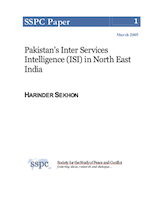Growing Shadow of Red Terror in Orissa
During mid-1990s the Naxal Movement (Left Wing Extremism) spilled over to Orissa from neighboring Andhra Pradesh and Jharkhand region. Now, the Naxal activities have enlarged to nine predominantly tribal districts i.e. Koraput, Malkangiri, Nabarangapur, Rayagada, Gajapati and Ganjam abutting the Andhra Pradesh and Sundargarh, Mayurbhanj and Keonjhar districts adjacent to Jharkhand. While the above nine districts remains the Naxal stronghold, the movement have also grown stronger in different parts of Sambalpur, Kalahandi, Bolangir, Phulbani, Deogarh, Jharsuguda and Anugul.







